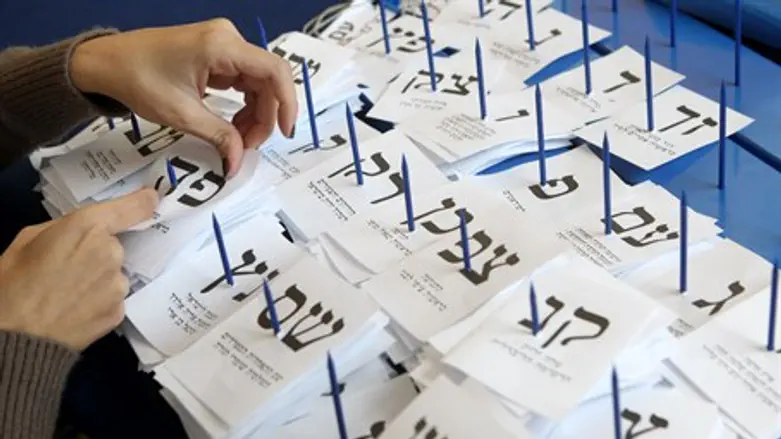
With the state budget passed and “problematic” legislation like the adjustment of the law drafting haredi yeshiva students into the IDF now resolved, Binyamin Netanyahu's coalition has a better chance of surviving, at least for the near-term.
But in a Knesset where the ruling coalition is in power by virtue of a single vote, the threat of new elections is never far away – and if new elections were to held at this time, according to a poll by the Ma'agar Mohot polling organization, the right would continue to improve its showing.
As it is, the majority of MKs in the Knesset today are to center and right – although not all right-wing parties are partners in the coalition, as the six-seat secular-nationalist Yisrael Beytenu party is currently in the opposition.
Taking into account the seats of Yisrael Beytenu, the center/right/religious parties in the Knesset make up some 70 Knesset members. But if elections were held today, the right would grow even more, showed the poll, which was conducted on behalf of Radio 103.
The Likud, according to the poll, would increase by one seat, to 31 from its current 30. Naftali Bennett's Jewish Home would grow as well, from 8 seats to 9. Yisrael Beytenu, thought by many pundits to be on its way out as Russian-speaking voters became more assimilated into Israeli life, rises from its current 6 seats to 8. Shas, too, grows one seat, from 8 to 9.
Those extra four seats, which puts the center/right parties over the 70 seat mark in the Knesset, come at the expense of Zionist Union, which shows a loss of four seats, from its current 24 to 20. Also losing strength is Moshe Kahlon's Kulanu, which sinks to five seats from its current ten.
Meretz, the Joint List and United Torah Judaism do not register any changes in the number of Knesset seats they would garner.